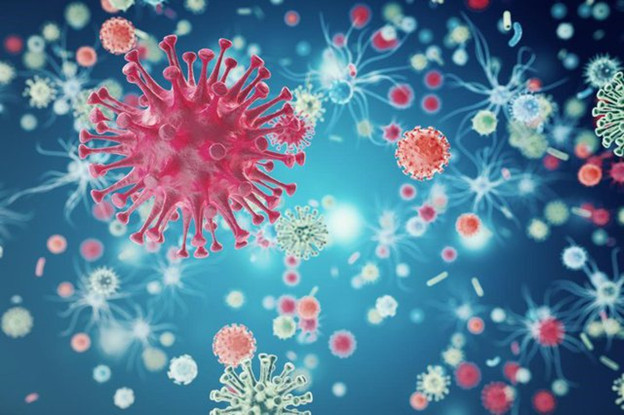The RSV virus, also known as respiratory syncytial virus, can spread when an infected person coughs or sneezes. The illness usually causes mild, cold-like manifestations, and most people recover in a week or two. However, RSV can be serious, especially for infants and older adults.
In the United States, records suggest RSV is a cause of bronchiolitis and pneumonia, most commonly in children under 1 year of age. In older adults, RSV is also a cause of respiratory illness.

Who is more susceptible to RSV virus
Common RSV susceptibility is premature infants and young children, especially those 6 months and younger. Children younger than 2 with lung disease and children younger than 2 with chronic heart disease are also highly susceptible to RSV. Children with weakened immune systems or neuromuscular disorders are also susceptible to RSV infection..
Manifestations when a child is infected with RSV
In fact, when infected with RSV, most will have cold-like manifestations: Runny nose, cough, sneezing and fever, accompanied by wheezing ..., but can also cause severe illness such as bronchiolitis, pneumonia. However, hospitalization is required in some children infected with RSV, especially those younger than 6 months of age infected with RSV.
What to do if a child is at high risk for RSV infection?
This is a question many parents ask as the weather changes and there are reports of young children hospitalized with RSV surges. To minimize RSV transmission to children, parents should follow these guidelines:
- Need to wash your hands often
Because RSV can spread through objects, it's important to wash your hands often with soap and water for 20 seconds before going home and when caring for your child. Parents also need to help children wash their hands often, if soap and water are not available, use an alcohol-based disinfectant, as hand sanitizer will help protect children from RSV infection.
- Limit going to crowded places, avoid close contact with sick people
Should limit going to crowded places, avoid close contact with people suspected of having infectious diseases, flu ... Not only in young children but even family members. Do not fragrance, kiss, and share cups or eating utensils with people with cold-like symptoms.
- Cough and sneeze should be covered
When coughing and sneezing, it is necessary to cover the mouth and nose with a tissue or the upper shirt sleeve. Then put tissues in the trash, and avoid touching your eyes, nose, and mouth with your hands when unwashed, as RSV can be infected.
- Cleaning children's places, utensils and toys
Cleaning and disinfecting surfaces of utensils, shelters, especially children's rooms is also a measure to limit RSV transmission. It is necessary to clean and disinfect surfaces and objects that people frequently touch such as toys and doorknobs.
However, parents should not be too confused, instead actively update their knowledge about signs of illness, prevention to reduce the risk of RSV infection or infection for children, as well as promptly take children to health facilities.
Source: Health & Life Newspaper

See more product information here.